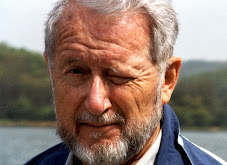Essay 28.1
REFLECTIONS IN A DENTIST’S CHAIR
(Triggered by a desire to slow tooth decay)
I have an enormous empathy for those who repeatedly point out the ramifications of Loveland, Colorado’s growth. They are good observers, with good memories, and are justly troubled by the changes that they have experienced and will likely see in the future. Some describe continued development as blight, others see it as opportunity. Whatever the view, all the possible problems that can accompany growth certainly have not yet been dealt with, probably not yet been thought of. There is little doubt that there is trouble ahead.
It is vital to appreciate the fact that there really is no such thing as “zero growth”. Every culture, society, community, institution, organization and individual is, at any given moment, an amalgam of both growth and decay. These occur simultaneously. Here I can use “growth” in the context of learning, but whatever its form, it is ever-present in all living and evolving things.. If one were to be successful in halting growth, there is left only decay. It very well may be that the only thing worse than growth is decay. Furthermore, the two are not symmetrical, in that decay is unrelenting, while growth is problematic.
The United States has doubled in population since I was born. But despite this growth, I have seen my home town, located in a neighboring state, dying. Some years ago the community leaders made a conscious effort to keep the city as it was, waving away pressures to change life styles with housing developments, new businesses, etc. Growth was minimized, and guess what? Decay crept along, then picked up speed, and soon became rampant. (When you are over the hill, you pick up speed!) The younger generation departed for other climes. The people who wanted to keep things as they were retired, and their businesses disappeared shortly thereafter and, frequently, so did they! Occasionally a house would burn. It was not replaced. Then business places became empty. Doctors and other professional people became fewer. It was necessary to travel considerable distances for health care and other essentials (and all the while, a bigger percentage of the population needed such care!) The tax base decreased, of course, so there was less money for public matters. Occasionally some money was raised to raze individual buildings and groups of buildings. The vacant places were not needed for parking lots, nor were they used for sculptures. The band shell decayed to the point of classic eyesore, and it was years before volunteers restored that part of the city park, first to grass, ultimately to weeds.
Meanwhile, nearby cities, with discernable differences only in attitude, increased in population, added services and “things to do”. Guess where people in my home town now go for almost everything essential. They also go to neighboring places because they are bored at home. And they leave to visit the kids and grandkids, since the kids can’t seem to make it back home very often. It seems that people inevitably want to go where the action is! Also, they spend money while they are there.
My home town is quiet, and beautiful, and peaceful. But as I remember the good old days, I think of vibrant things--the large high school, the many activities, community affairs, etc. It is the boom town days we take pleasure in recalling, more than depressions.
Too much can be made of my first-hand observations of decay. There were of course many factors involved, and I am probably aware of only some of them. But I would urge all of us, from those who inevitably opt for the status quo to those who are avid developers, to remember that we are obligated to fight decay just as much as we are to praise or decry growth. We all need to work at the task of enhancing community life, and community services. We want all age groups here, including those young families moving here for new jobs. True life requires generations.
I have been very impressed with the level of volunteer work that is made available to us here in Loveland, and this is a necessary ingredient of a viable community. Another key ingredient resides with the city staff, who appear to me to be much better qualified than the staff of any analogous community I have known. They are not quite as good as we deserve, of course, but are much better than we have any right to expect. I notice that they are getting better all the time, adjusting to new technologies and opportunities quite a bit faster than the average citizen. We should offer every encouragement, and celebrate their good common sense.
Finally, I am thankful that it is possible to be against “growth” without being mean spirited about it, and possible to be for “growth” without being greedy. And no matter which of these two “groups” you choose to describe some of your beliefs, keep looking for ways to fight decay! It will be our ability to handle that problem that will determine our future, and not, for example, the number of cars in a given intersection at a given moment.
And does anybody have any new ideas about fighting tooth decay?
Saturday, October 25, 2008
Subscribe to:
Post Comments (Atom)


No comments:
Post a Comment